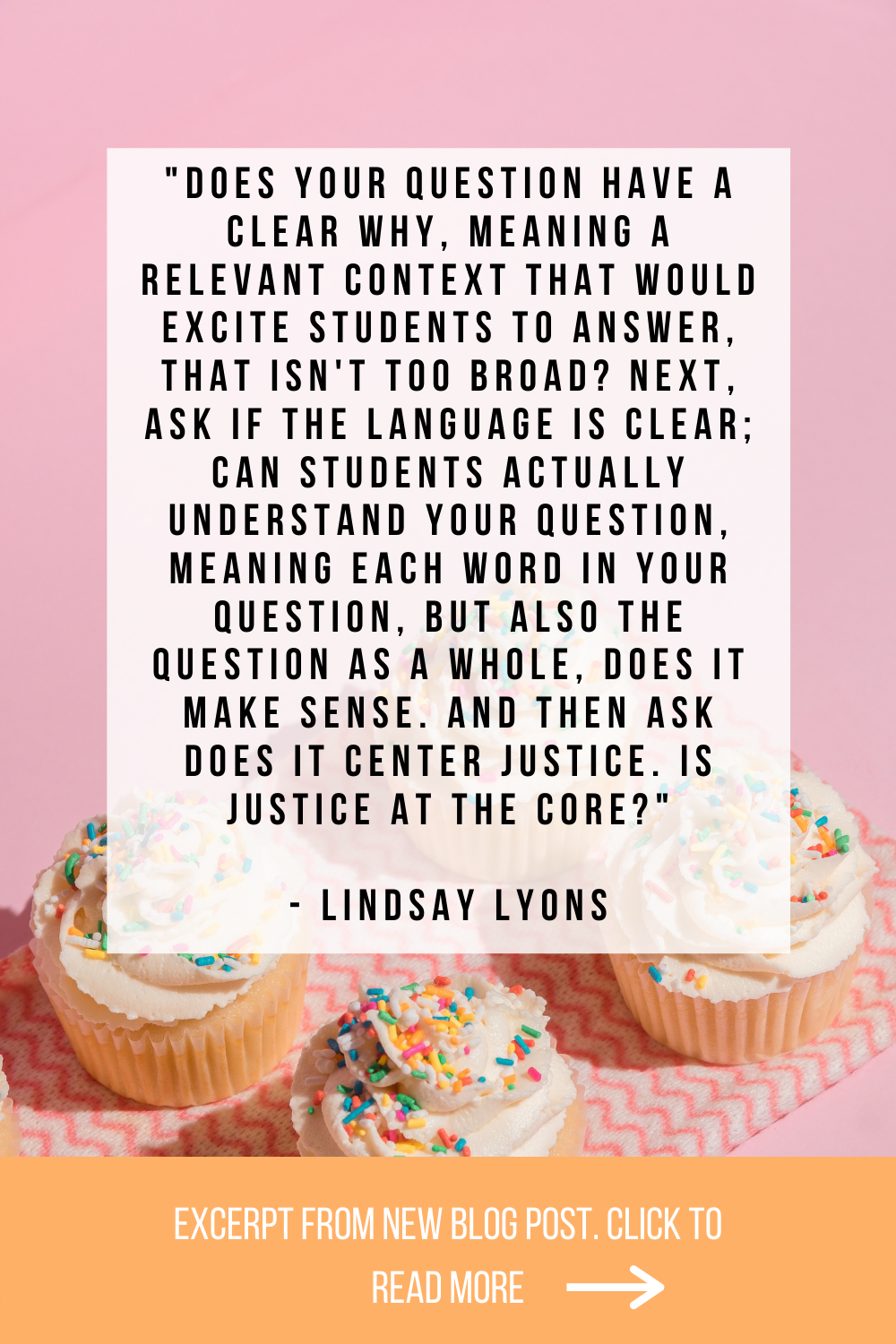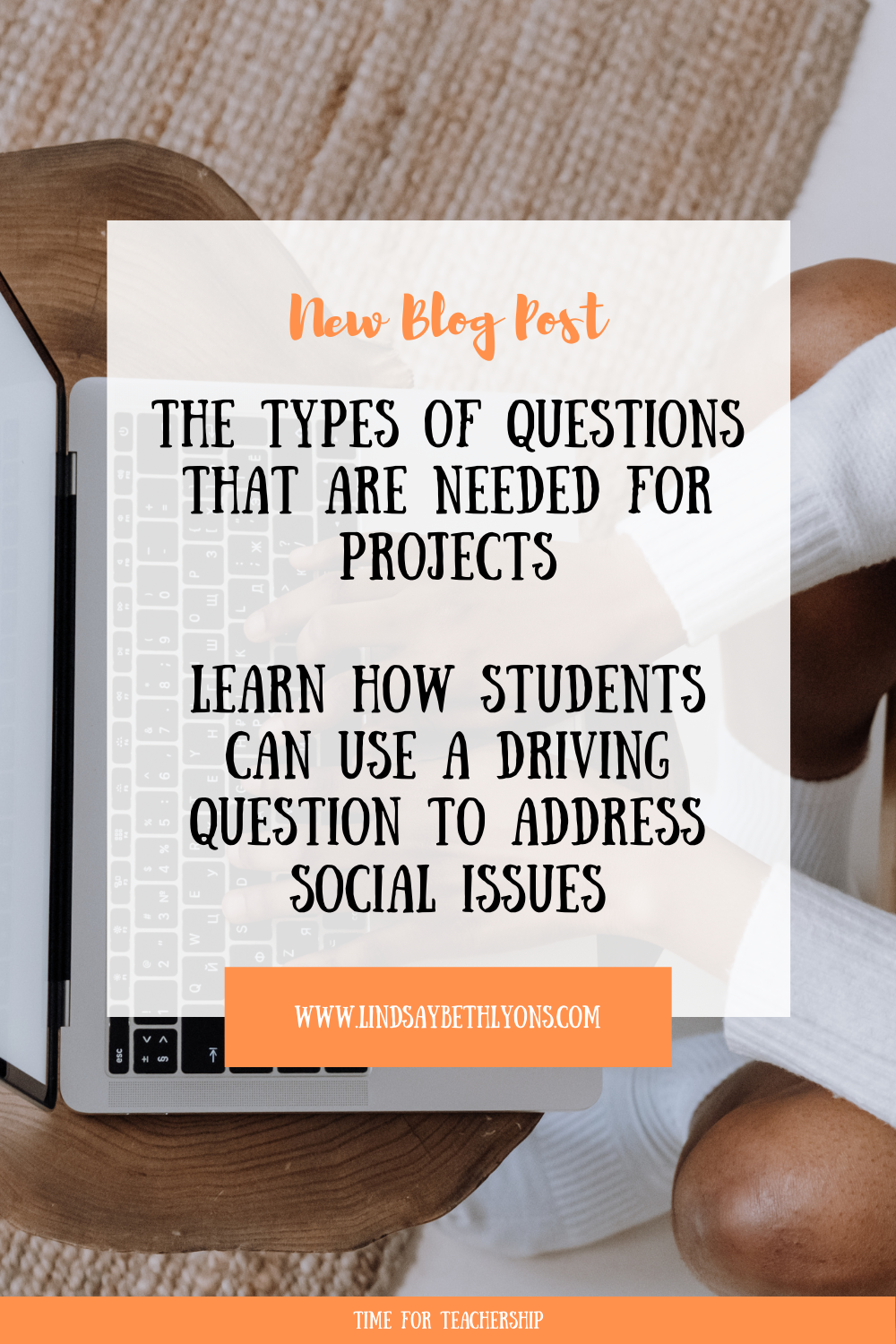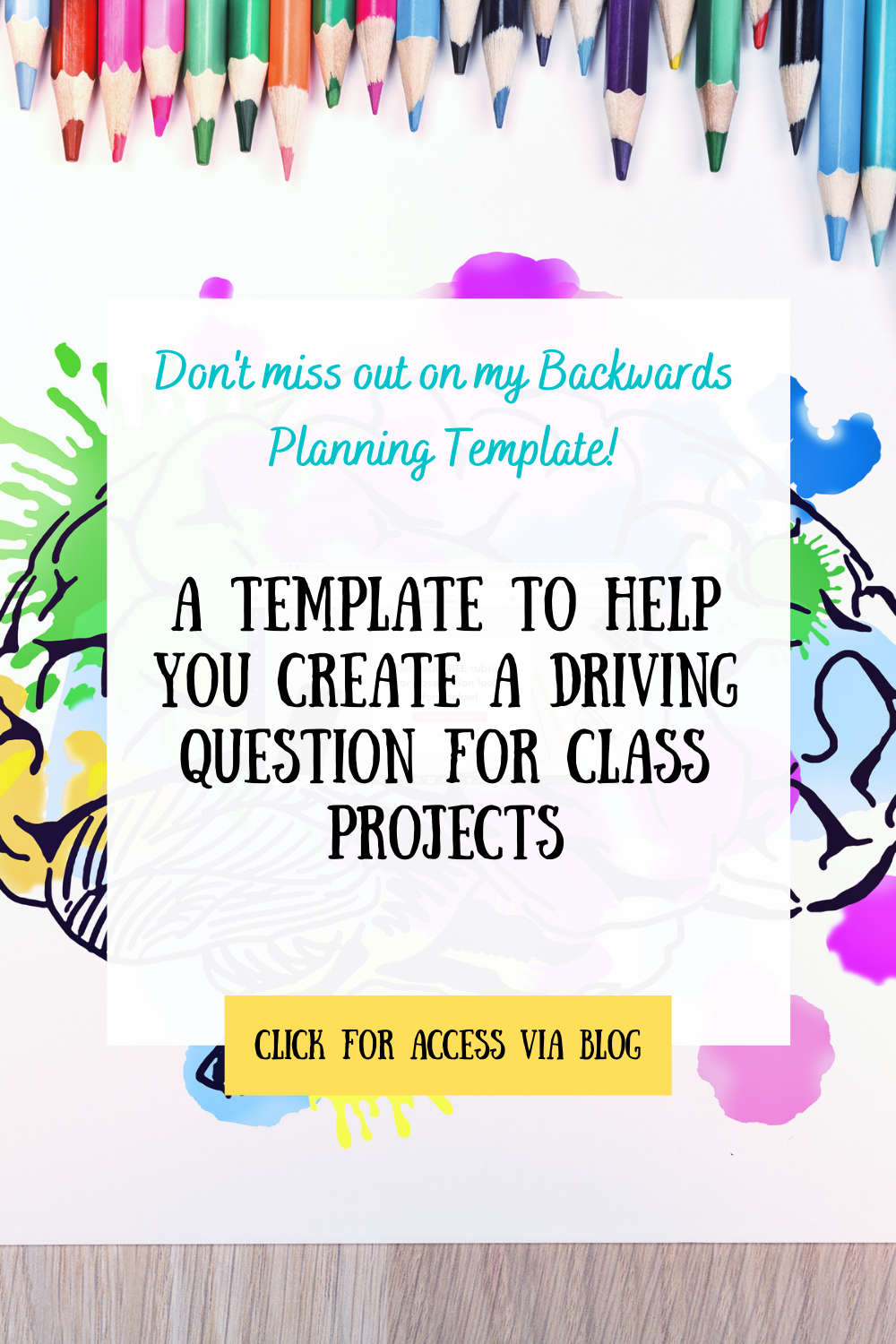|
Listen to the episode using the above player or by clicking the link to your preferred podcast platform below:
Driving questions, Essential questions, and Supporting questions This series, we’ve been talking a lot about project based learning. One of the main elements of Project Based Learning is coming up with a driving question. What’s a driving question? It is one that’s aligned with learning goals, engaging, allows for open ended responses, rooted in a specific context, clear, and centers justice. There are also essential questions and supportive questions. Grant Wiggins has a blog post that explains the difference between all of these. The essential question stays relevant and comes back into curriculum unit after unit, even moving between subjects and grade levels. Supporting questions are small scale. They have an agreed upon answer and they help students in answering their big driving question. All of these question types are helpful for different reasons. They all go together into completing a project that looks at an issue. What’s important here is not trying to leave any out or substitute one for the other. In this episode, we're diving into the details of a driving question. “There are different levels of questions and an essential question as the driving question for a project is not going to cut it. it's not going to be super engaging, it's not going to be contextualized in a way that makes sense for the project so students might be confused; they might just be disinterested. And the supporting or what I have been calling the scaffolding question is just way too narrow.” What make a driving question stand out? It’s important for a driving question to be exciting for students. If there’s no interest, it’s automatically going to be a less effective project with answers that may not be fully developed. We want it to be in a specific context so that it’s not too broad. It needs to be open ended so that students can all respond in their own way with something unique to bring to the table. It should be clear; students should know what is being asked of them. Lastly, it should center justice and give students a chance to be a part of real world problem solving. Examples A way to make sure that your driving question hits all of these elements is to create at least 5 rough drafts before you decide what your final question is. Additionally, ask a friend or students for feedback to see if anything’s missing. To borrow an example from John Larmer at PBL Works, if you were going to talk about math and basketball, your first draft might look something like this: How is math used in basketball statistics? Then it could progress to: Is Lebron James the best basketball player ever? There’s a clear difference here for a couple reasons. First, it’s gotten more specific. It is more compelling. People are much more interested in Lebron James as the subject. And it’s created another question about how to define best and what that’s based on. Now it would have to be edited further to include justice. Sometimes when justice is added to the question, the question may get bulkier or less clear, so you want to try to maintain a balance all of these qualities. Some of the possible directions you can go with driving questions is making it:
Here is John Larmer's post with some more sample questions to check out Closing activity: As we close this post, just take a moment to do some brainstorming. Think of a unit idea/topic that you could use for your question. Then try to come up with those 5 minimum drafts. Use the Backwards Planning Template to give you a checklist for driving questions as well as some other info you won’t want to miss. If you have any further questions feel free to reach out! For more, check out my Curriculum Boot Camp course or the “Just the Protocols” module now to create your own project-based units grounded in justice in no time at all! Until next time leaders, continue to think big, act brave, and be your best self.
0 Comments
Leave a Reply. |
Details
For transcripts of episodes (and the option to search for terms in transcripts), click here!
Time for Teachership is now a proud member of the...AuthorLindsay Lyons (she/her) is an educational justice coach who works with teachers and school leaders to inspire educational innovation for racial and gender justice, design curricula grounded in student voice, and build capacity for shared leadership. Lindsay taught in NYC public schools, holds a PhD in Leadership and Change, and is the founder of the educational blog and podcast, Time for Teachership. Archives
May 2024
Categories |




 RSS Feed
RSS Feed